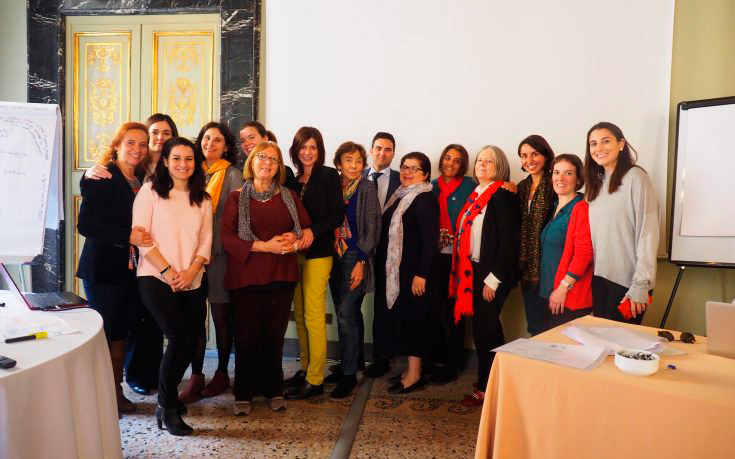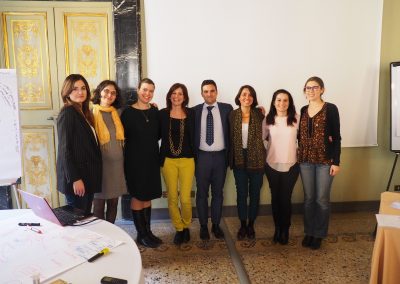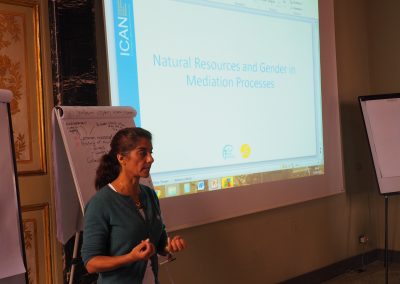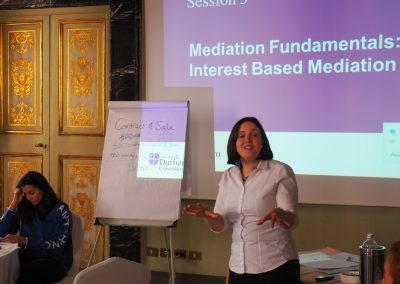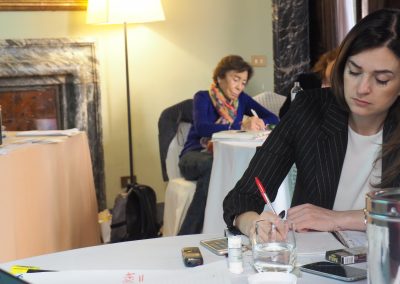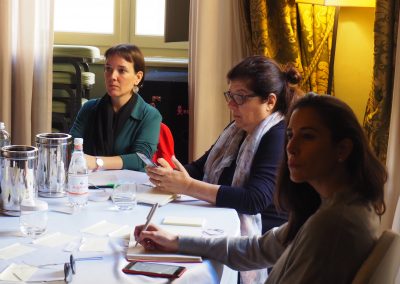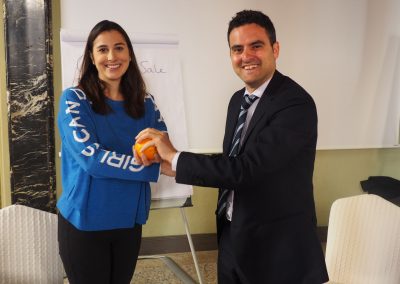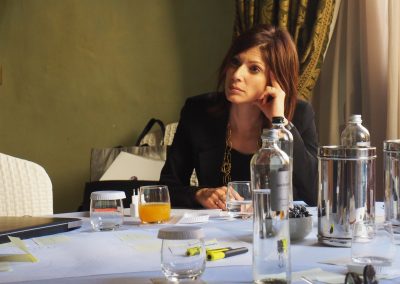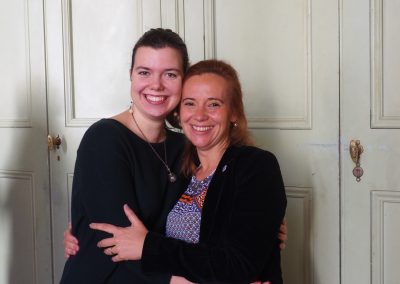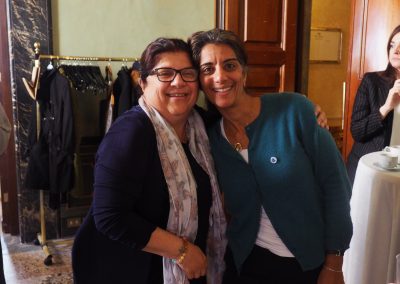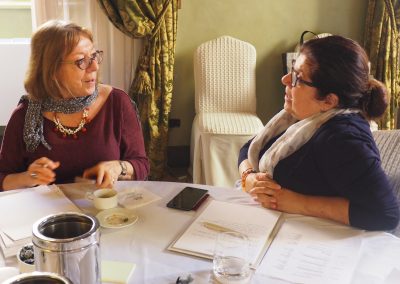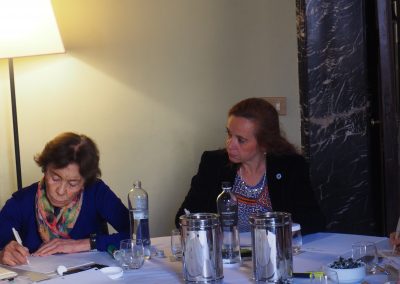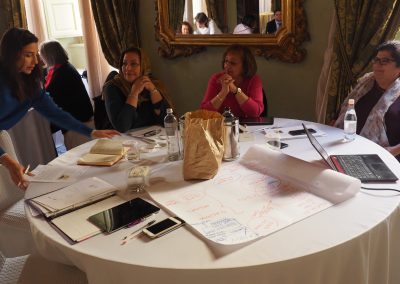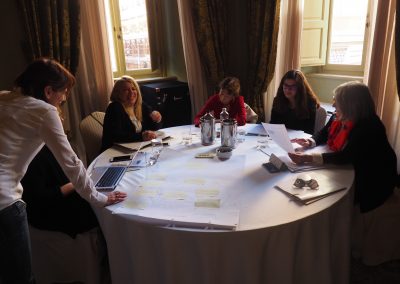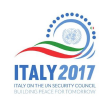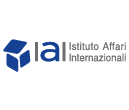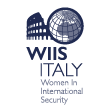The “Training and Experience Sharing on Inclusive and Gendered Mediation” was organized in Rome at Palazzo Torlonia, on April 12-18 and was attended by 12 members of the Network coming from 10 different countries of the Mediterranean region, namely: Portugal, Cyprus, Turkey, Algeria, Libya, Spain, Croatia, Lebanon, Egypt, and Palestine. This training module was organized within the framework of the 2019 activities of the Mediterranean Women Mediators’ Network (MWMN), a project launched, promoted and funded by the Italian Ministry of Foreign Affairs and International Cooperation in cooperation with the Istituto Affari Internazionali (IAI) and WIIS-Italy, main partners in the implementation of the Network’s activities.
The training aimed at developing gender-sensitive conflict analysis competencies, at reinforcing mediation and negotiation skills, and at providing in-depth analysis from a gender perspective of topics generally raised during mediation processes, such as sexual violence and ceasefire, power-sharing, natural resources, land and property rights. At the same time, the training represented an important occasion for networks’ members to come together in Rome after the foundational event that took place in October 2017, and to share experiences and knowledge from their respective countries. Teambuilding is an essential component of a network’s life and participants recognized that spending time together allowed them to feel more involved in the initiative and helped them develop a stronger feeling of engagement towards the MWNM.
The first part of the training, conducted by Prof. Catherine Turner, Associate Professor in Law at Durham University and Deputy Director of the Durham Global Security Studies, focused on Mediation Fundamentals, Conflict Analysis and Process Design, and Communication Skills (active listening). All aspects were analyzed applying a gender perspective, demonstrating once more how a gender blind conflict analysis can affect the entire peacebuilding process. Prof. Turner shared the findings of her most recent research about the specific skills that women bring into mediation processes and examined the legal, political and cultural barriers that women face in accessing high-level mediation. A special focus was given to the role of women in the Northern Ireland peacebuilding process.
The second part of the training was led by Sanam Anderlini, Founder and Executive Director of the “International Civil Society Action Network” (ICAN), and a member of the Women Mediators Across the Commonwealth Network. Starting from an excursus about the history and evolution of war and peacemaking, she then went through an analysis of Ceasefire Negotiation and Power Sharing from a gender and inclusive perspective. Special attention was also dedicated to the Natural Resources, Land and Property Rights, and the Security Sector Reform, underlining how each of these topics needs the integration of a gender lens if a peace process wants to ensure that all different people’s needs are taken into the right consideration.
For the entire week, lectures were complemented by simulation and role-play exercises in order to enable participants to practice their mediation, negotiation and communication skills. Melinda Holmes, senior adviser and program manager at ICAN for Women’s Rights, Peace, and Security, guided a choral reflection on the Network’s identity and its core values and helped the group identifying mid-term objectifies. Based on this joint reflection, a Road Map pointing out the progressive goals that the MWMN aims to reach within 2020 to increase the participation of women in global conflict prevention and mediation was elaborated.
This first training event, warmly welcomed by the participants, will be followed by a second one to be held in French that will take place in Rome, next June. The training program was developed and coordinated by Irene Fellin, President of Women in International Security (WIIS) Italy in collaboration with Istituto Affari Internazionali (IAI).
